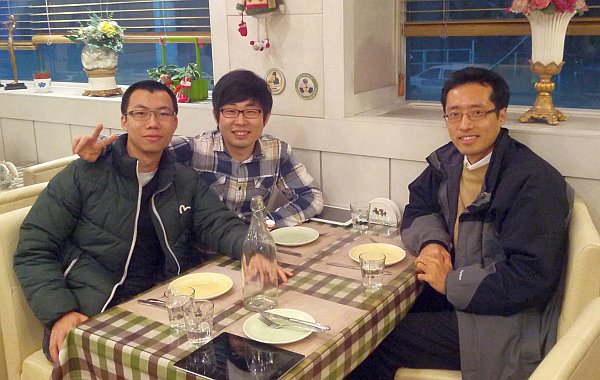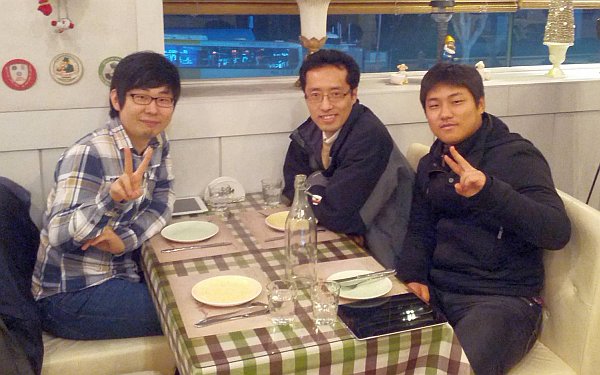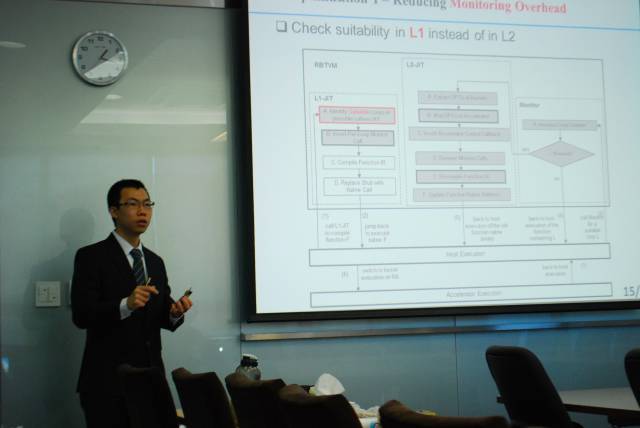Archive
Runtime and Install-time Binary Translation for Reconfigurable Accelerators
In his masters thesis defense on Jan 9th, 2013, Toan presented an approach called Runtime Binary Translation (RBT) that can dynamically make use of the CGRA accelerator existing in a CGRA-based reconfigurable computing system to speedup the execution of application intermediate representation (IR) on top of a just-in-time (JIT) compiler. A simpler approach called Install-time Binary Translation (IBT) based on RBT is also proposed. Here is the abstract of the thesis. 😀
Nowadays, softwares are often distributed in form of some machine-independent intermediate representation (IR), because compared to machine-dependent native binary, the IR is more portable across a wide range of architectures, has better security, and contains richer semantic information. However, the problem of making use of the accelerator in a target machine to speedup the execution of the IR on top of a just-in-time compiler (JIT) is challenging, mainly because the discovery of compute-intensive kernels and the partitioning of the application to the kernel and sequential parts must be done based on the IR alone, without the access to the program source code as well as the kernel information in the IR.
In this work, we propose a Runtime Binary Translation (RBT) technique that can dynamically identify and translate kernels IR to Coarse-Grained Reconfigurable Array (CGRA) accelerator configuration, and offload the execution of the kernels onto the accelerator. Also, we simplify the RBT approach to make the Install-time Binary Translation (IBT) approach, which does the partitioning and the translation right at the install-time instead of at the runtime. Experimental results show that our RBT and IBT techniques can improve the runtime of the application IR by 1.44 times and 1.61 times, respectively, compare to the runtime on the JIT that does not support making use of the accelerator.

Runtime Binary Translation Virtual Machine Optimized Design
Which editor — emacs vs vim?
With Emacs you are expected to have it open 24/7 and live inside the program, almost everything you do can be done from there. You write your own extensions, use it for note taking, organisation, games, programming, shell access, file access, listening to music, web browsing. It takes weeks and weeks till you will be happy with it and then you will learn new stuff all the time. You will be annoyed when you don’t have access to it and constantly change your config. You won’t be able to use other people’s Emacs versions easily and it won’t just be installed. It uses Lisp, which is great. You can make it into anything you want it to be. (anything, at all)
With vim, it’s almost always pre-installed. It’s fast. You open up a file, do a quick edit and then quit. You can work with the basic setup if you are on someone else’s machine. It’s not quite so editable; but it’s still far better than most text editors. It recognises that most of the time you are reading/editing not typing and makes that portion faster. You don’t suffer from emacs pinkie. It’s not so infuriating. It’s easier to learn.
Even though I use Emacs all day every day (and love it) unless you intend to spend a lot of time in the program you choose I would pick vim
via http://stackoverflow.com/a/1433315
The best summary that I have seen on the differences between the two editors. Conclusion? You need both!
Toan Passes Thesis Defense
Congratulations, Toan!
Yesterday, January 9, Toan successfully defended his thesis on Runtime and Install-time Binary Translation for Reconfigurable Accelerators. Though there are some minor things he has to finish before he can get the approval signatures from the committee members, the thesis committee was in general agreement that he did a good job for a masters degree, based on his achievements during the graduate program and his thesis writing.
Now that he is seeking an industry career at the moment, the ICCL lab wishes him a good luck in his career and a good fortune too! 🙂


